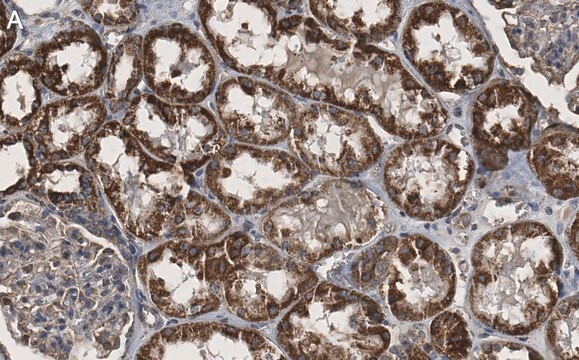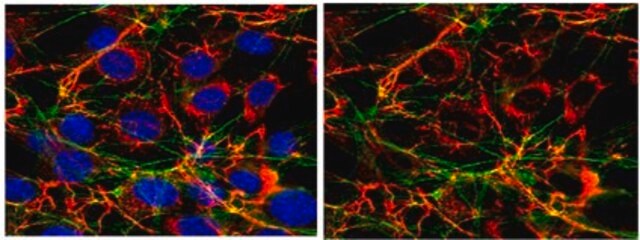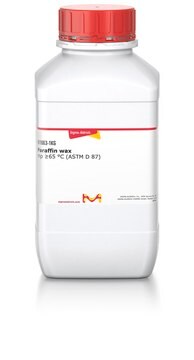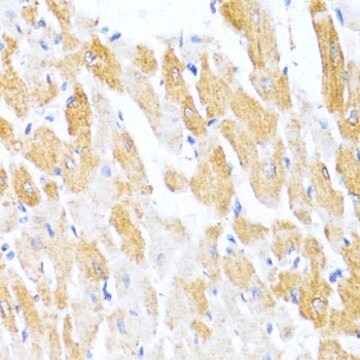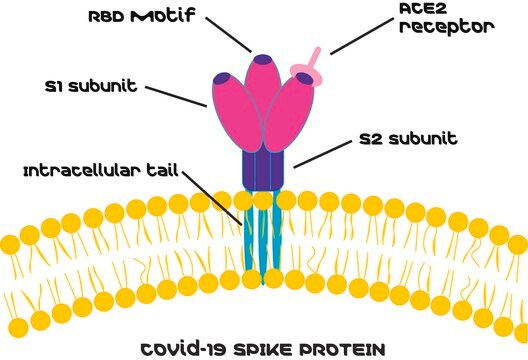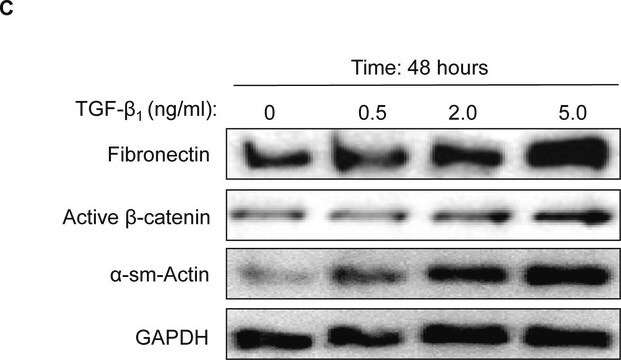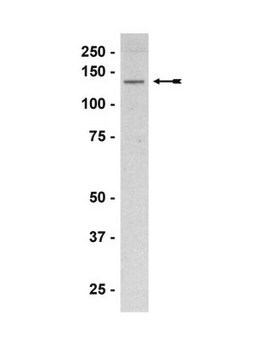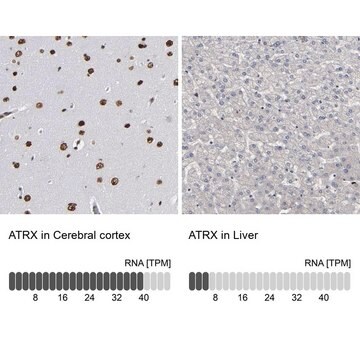SAB4200401
Anti-CTGF antibody, Mouse monoclonal
clone CTGF-14, purified from hybridoma cell culture
Sinonimo/i:
Monoclonal Anti-CCN family member 2, Monoclonal Anti-CCN2, Monoclonal Anti-CTGF antibody produced in mouse, Monoclonal Anti-Connective tissue growth factor, Monoclonal Anti-HCS24, Monoclonal Anti-Hypertrophic chondrocyte-specific protein 24, Monoclonal Anti-IBP-8, Monoclonal Anti-IGF-binding protein 8, Monoclonal Anti-IGFBP-8, Monoclonal Anti-IGFBP8, Monoclonal Anti-Insulin-like growth factor-binding protein 8, Monoclonal Anti-NOV2
About This Item
Prodotti consigliati
Origine biologica
mouse
Coniugato
unconjugated
Forma dell’anticorpo
purified from hybridoma cell culture
Tipo di anticorpo
primary antibodies
Clone
CTGF-14, monoclonal
Stato
buffered aqueous solution
PM
antigen ~38 kDa
Reattività contro le specie
human
Concentrazione
~1.0 mg/mL
tecniche
immunoprecipitation (IP): suitable
western blot: 0.25-0.5 μg/mL using whole extracts of HEK-293T cells over-expressing CTGF.
Isotipo
IgG1
N° accesso UniProt
Condizioni di spedizione
dry ice
Temperatura di conservazione
−20°C
modifica post-traduzionali bersaglio
unmodified
Informazioni sul gene
human ... CTGF(1490)
Descrizione generale
Specificità
Immunogeno
Applicazioni
Azioni biochim/fisiol
Stato fisico
Stoccaggio e stabilità
Esclusione di responsabilità
Non trovi il prodotto giusto?
Prova il nostro Motore di ricerca dei prodotti.
Raccomandato
Codice della classe di stoccaggio
10 - Combustible liquids
Punto d’infiammabilità (°F)
Not applicable
Punto d’infiammabilità (°C)
Not applicable
Scegli una delle versioni più recenti:
Certificati d'analisi (COA)
Non trovi la versione di tuo interesse?
Se hai bisogno di una versione specifica, puoi cercare il certificato tramite il numero di lotto.
Possiedi già questo prodotto?
I documenti relativi ai prodotti acquistati recentemente sono disponibili nell’Archivio dei documenti.
Il team dei nostri ricercatori vanta grande esperienza in tutte le aree della ricerca quali Life Science, scienza dei materiali, sintesi chimica, cromatografia, discipline analitiche, ecc..
Contatta l'Assistenza Tecnica.